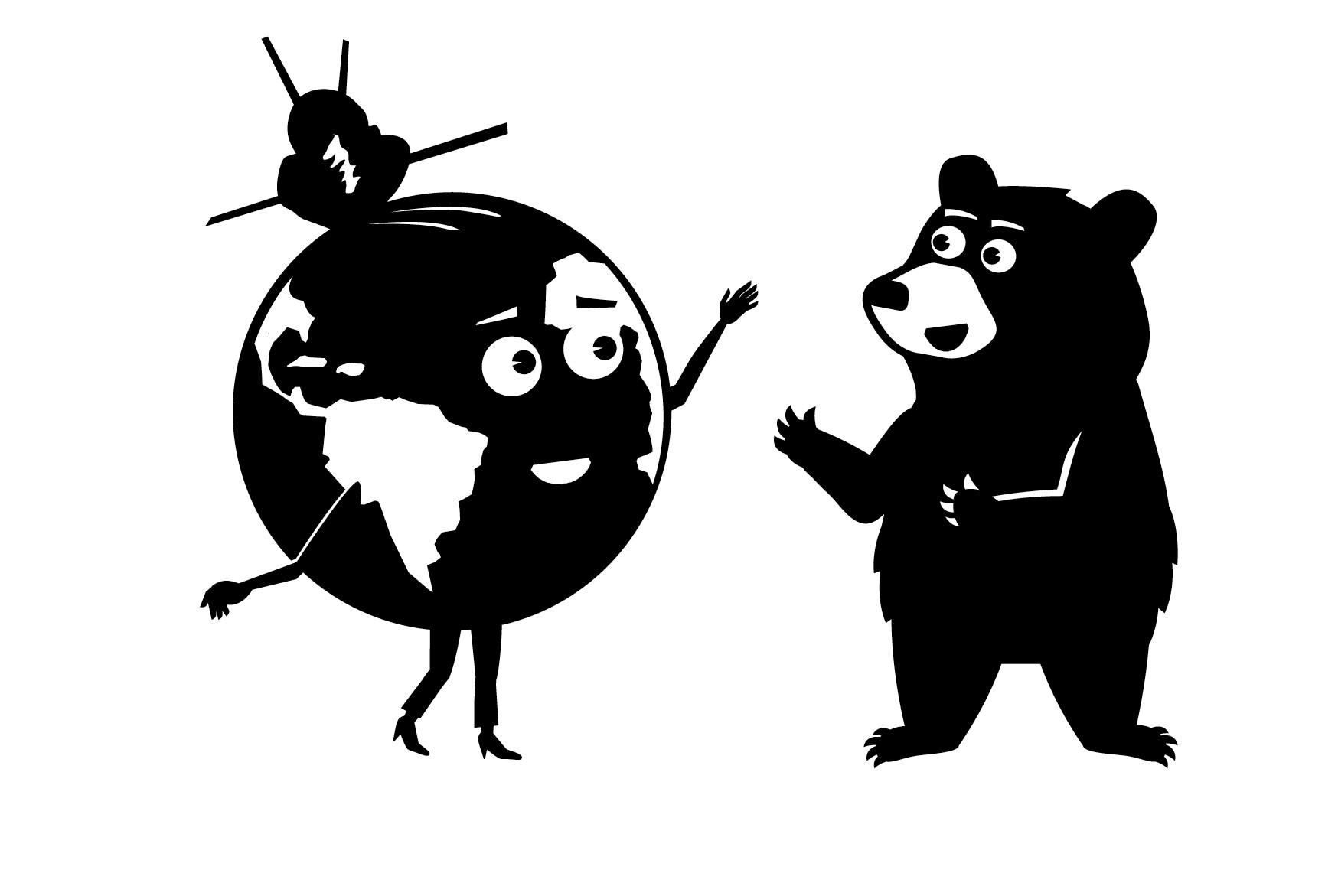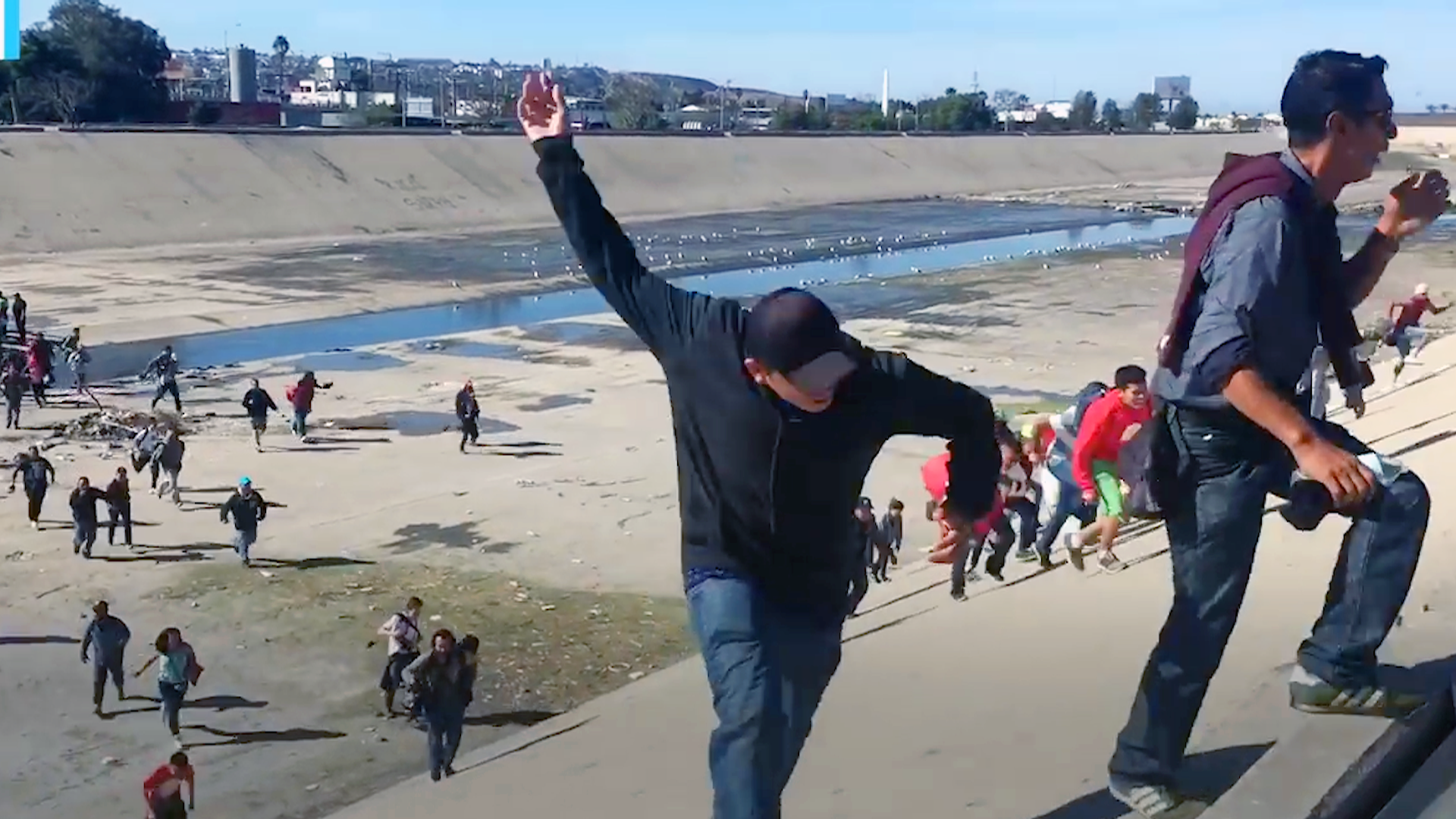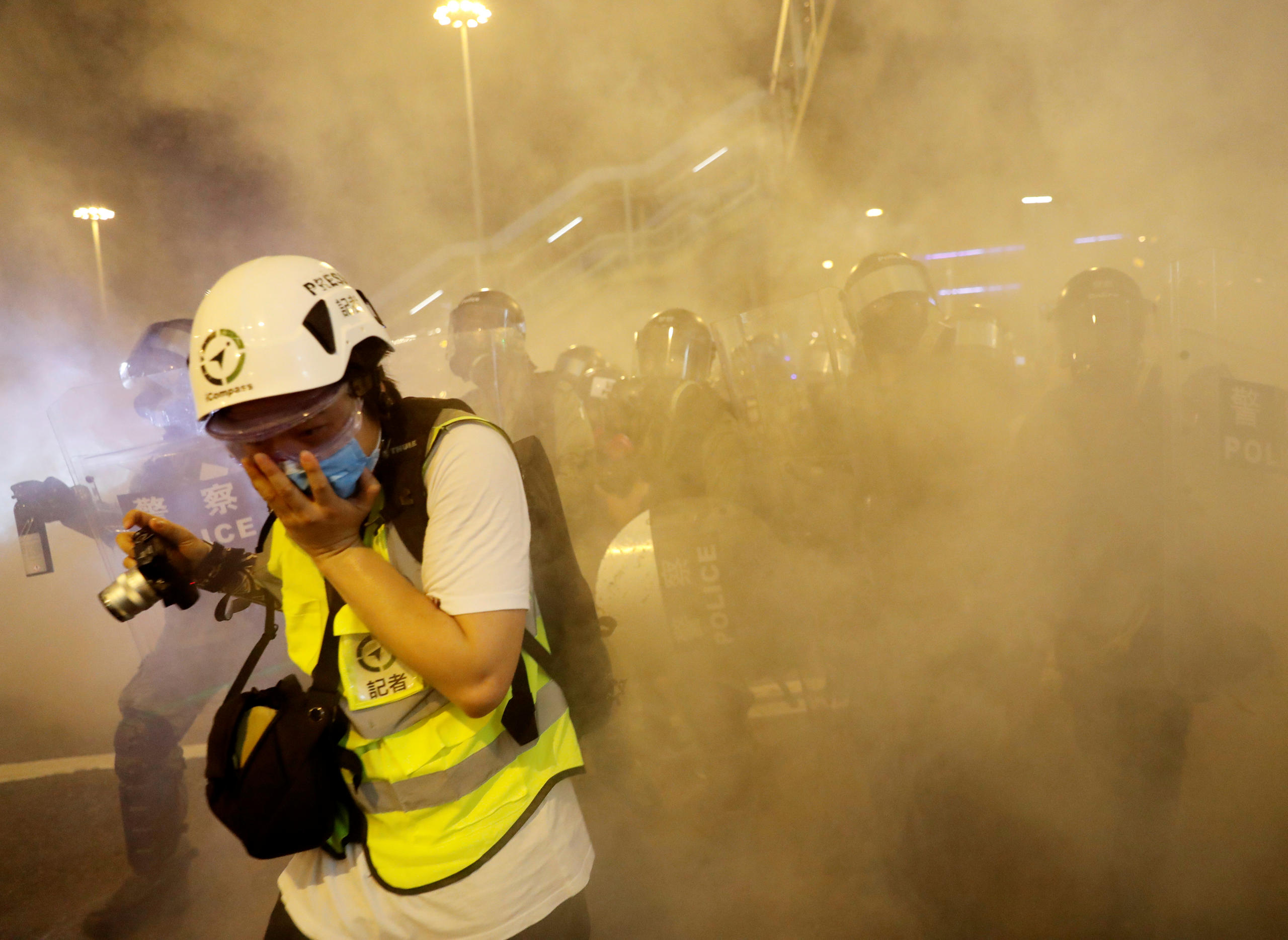How a media industry under pressure does verification

Being a journalist’s second pair of eyes is work that often goes unnoticed by the reader. Yet, regardless of how they approach it, verification is a major preoccupation for most media outlets.
Raffaela Angstmann had never given thought to how much a carpet shell clam might weigh, until it became her job to find out. The Zurich resident is often on such unusual missions as she doggedly checks every last detail – however trivial – of a story before it’s deemed ready for readers’ consumption.
“You’re being like a detective,” says Angstmann. “You dive into the research and lose yourself in a little fact […] and at some point you realise you’ve spent two hours on that fact.”
Angstmann is an editor and factchecker at Reportagen, a bimonthly German-language magazine that presents narrative-rich stories from writers around the globe. Although the entire small team of editors at the magazine will read each story carefully, Angstmann’s job, in her own words, is to “disassemble” the authors’ work, to make sure their stories meet journalistic standards of accuracy.

“I’m not sure that a lot of people know that factchecking exists,” she says. Factcheckers like her work behind the scenes, questioning everything and verifying “every possible detail about an article.”
“There’s almost always something in every sentence that you can check,” she adds.
This weekend Angstmann will be giving a workshop at the Reportagen Festival External linkin Bern on the finer points of factchecking, a job that in the era of misinformation feels more necessary than ever. Yet factcheckers dedicated solely to the verification of stories before publication are a rare breed in Switzerland, and increasingly in other countries too, as media outlets grapple with shrinking resources and changing consumer habits.

More
Watch: storytelling around the world
A team effort
Angstmann’s personal network of factcheckers is telling. She is frequently in touch with practitioners in the United States and Germany with whom she can share ideas. But she has yet to meet a fellow factchecker in her native Switzerland – not because no one else here is doing a similar job, but likely because the job doesn’t come with this exact title.
Historically both the US and Germany have had a strong tradition of forming expert teams of specialists who parse through stories before they go to print or online. Venerable publications like The New Yorker and Der Spiegel continue to run well-respected factchecking departments. By contrast, in Switzerland verification tends to fall to a combination of documentation experts, copyeditors and journalists themselves.
“Some of these [documentation specialists] are still present in newsrooms, but due to cost-cutting, verification processes are also left to the journalists,” says Colin Porlezza, a Swiss native and senior lecturer in journalism at City University of London.
The collaborative approach to verification is prevalent at SRFExternal link, the German-language public broadcaster, where a group of expert reporters have teamed up with the Documentation and Archive (D+A) unit to create an in-house “factchecking network”, led by journalist Benedikt Widmer. Widmer explains that any reporter can contact the network with a verification question, and whoever in the network has the possibility to help will do so.
Verification has long been a task for the documentation team. As a rule, journalists must verify all the information they want to use, says Giovanni Peduto, who works in the D+A unit.
“If they need assistance, they can come to us and give us material to check,” he says. “Some send us entire drafts where we check each word and information. Some just want [us] to check a person’s statement, a statistic, photos or video footage.” The copyeditor (Korrektorat in German) will also be involved in some verification, checking not just spelling and coherence, but also facts and figures, sometimes with the help of the documentation experts.

More
Swiss media stuck in negative spiral
Similarly, most of the outlets at publishing giant Tamedia, which owns the daily Tages Anzeiger and freesheet 20Minuten, generally follow a verification principle it calls “six-eyes”External link (author, proofreader, and copyeditor).
Bucking the trend
Reportagen then, appears to be one of the few publications with a dedicated factchecker. (Die Republik, an online media start-up that, according to its websiteExternal link, has a “comprehensive factchecking process”, did not respond to a request for information.) Its long pieces, some of them investigative in nature, are based on extensive research by its authors. So Angstmann often finds herself pouring over original texts – everything from court documents to contracts – and phoning up the stories’ protagonists. Each time it’s an eye-opening experience, she says.
“You get to see how someone else works, and as a journalist myself, I love that,” says Angstmann who, when not dissecting others’ articles, is typing out her own pieces for Reportagen and in the newsroom at the daily Neue Zürcher Zeitung.
When something in the story she’s checking looks amiss, Angstmann says her approach is to give the author the benefit of the doubt.
“You just go and explain the process and usually they’re so happy you’re looking into it,” she says. “I’ve never had anybody tell me, ‘No, you’re completely wrong.’”
Fighting for accuracy
For journalists in Switzerland as elsewhere, accuracy is a fundamental tenet of the profession. But it’s one that the news media does not always fufill. A 2010 study in which Porlezza was involved found factual inaccuraciesExternal link in 60% of stories from the regional newspapers the authors had reviewed. Porlezza is not aware of any recent similar study or data that would reveal the current state of news accuracy in Switzerland. Trust in the Swiss media overall sits below 50%External link.
Outright fabrications are rare (“fake news” outlets aside), so unsurprisingly the media world was shaken by the case of Claas Relotius, a star reporter at German magazine Der Spiegel, who it emerged in late 2018 had fabricated stories. Following an internal investigation, the magazine said that, although no one at Der Spiegel was aware of the fabrication or covered it up, there had been “insufficiently rigorous adherence to journalistic standards.”
The case got extensive coverage in the Swiss press, says Porlezza, but much of it was focused on the journalist’s responsibility rather than “on the question of how newsrooms can ensure accuracy and verification processes.”
Der Spiegel has vowed to learn from the scandal and revise “our reporting, fact-checking and narrative standards.” The magazine did not reply to a request for comment at the time of writing.
Experts contacted by swissinfo.ch could not say whether the case at Der Spiegel has had an impact on how the media in Switzerland does verification. At SRF, Widmer and Peduto say, there may have been an uptick in the number of requests for factchecking from journalists.
Dwindling resources
Whatever changes might be afoot may have less to do with fibbing journalists than the economic realities of the business. According to Porlezza, quality control is likely to continue to be a victim of “increasing commercial pressures in terms of cost-cutting and an increasing media concentration”, along with “audiences turning away from quality news providers.”
With the Internet and social media in particular playing a greater role in both news production and consumption, the scope of verification has also been changing, with more emphasis on checking user-generated content and social media posts, Porlezza adds. Specialists adept at verifying viral online information have emerged in organisations like the BBC.
For Angstmann, the Internet is one research tool among many in her kit (“Many factcheckers still use books”, she says). One message she hopes to get across at her workshop is “how fast an error can occur” and the important function factchecking plays as a quality control mechanism in journalism.
But she also wants to show how fun it can be.
Her passion is likely to be contagious. In her experience, journalists do their best to be accurate, she says, pointing to investigative reporters who are especially thorough and document all their work.
“That’s why it’s so inspiring to look at their work again. You see how much work they put into their research.”
A festival of storytellers
The Reportagen Festival, running August 30 to September 1 in the Swiss capital Bern, will feature 60 writers from around the world who will reveal what it is like to report in their home countries. No fewer than 50 events are plannedExternal link at various venues in the city. Admission is free and open to the public.
The highlight, according to organisers, is the True Story Award, which will be handed out by an international jury to a winner selected from 39 nominated articles – each of which was factchecked by Reportagen‘s Raffaela Angstmann.

More
Reportagen Festival Bern

In compliance with the JTI standards
More: SWI swissinfo.ch certified by the Journalism Trust Initiative














You can find an overview of ongoing debates with our journalists here . Please join us!
If you want to start a conversation about a topic raised in this article or want to report factual errors, email us at english@swissinfo.ch.